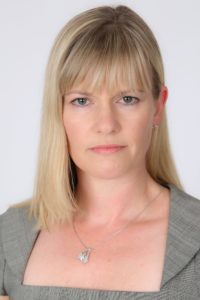Juliet Schooling Latter, research director, FundCalibre spoke to M&G Japan investment specialist Sunny Romo, who believes Japan might be on the cusp of a major period of growth.
“Japan is cheap, but it’s been cheap for a long time, so what’s the difference now?”
That’s the rhetoric you get from anyone who is pessimistic on Japanese equities and, to be fair, there is a strong rationale to support their pessimism.
The figures don’t lie. Hailed as one of the masters of capitalism in the 1980s, on 29 December 1989, the Nikkei 225 stood at 38,957. It didn’t exceed 30,000 again until February 2021*. So, when I hear someone say that Japan is going to grow a lot faster than most of the developed world over the next decade it’s guaranteed to grab my interest, and that is what M&G Japan investment specialist Sunny Romo told us recently.
Sunny acknowledges Japan has been a low growth market challenged by deflation but says the past 10 years have been more promising, delivering 10 per cent compound annual growth in earnings.
This is tied into the appointment of Shinzo Abe as prime minister and, as a result, Abenomics. Abe started this reform for corporate Japan to act more like profit-making businesses and facilitate this positive change – not only on paper, but in the mentality of management. Companies were expected to be profitable, rather than just produce full employment. Corporate reform is no longer a political issue.
“If you think that Japan’s been able to deliver a 10 per cent compound annual growth rate over the last 10 years whilst this has been happening, there’s no reason to think that this trend won’t continue. There’s plenty of companies who are only beginning this corporate improvement journey,” Sunny said.
M&G Japan fund invests in Japanese firms of any size. Manager Carl Vine is based in London, alongside deputy fund manager David Perrett. Carl has over 20 years’ investment experience and has been running this portfolio since September 2019.
The team focuses on a core universe of around 250 stocks that have been closely followed over many years. All team members, including the fund managers, have analytical responsibilities for stocks within the fund’s universe.
The managers aim to understand how a company works, how it generates profit, whether those returns are sustainable, potential upsides and downsides and what its value proposition is. This enables them to understand the context of the company within its industry to get a full picture of its business outlook.
Regular meetings are held with company management, both in London and Japan. By maintaining a strong dialogue with companies, the managers find that they frequently develop insights and ideas that are not thrown up by numeric-based screens. The team’s stock-picking approach aims to identify a large, exploitable gap between the price the market ascribes to a stock and its own estimated value of that stock, based on proprietary research.
The investment process is based on the principle that there are four key elements of the ‘investment problem’: independence, conviction, fallibility, and uncertainty. Independence is addressed with differentiated idea generation; lack of conviction will increase the chance of making the wrong investment decision at the wrong time – which can be avoided thorough research of a consistent universe of stocks; fallibility focuses on the reality of getting things wrong and having a margin-of-safety before investing; while uncertainty addresses the fact that most of the value of securities lives in an unforecastable future, hence a focus on pricing risk through a probabilistic framework.
The investment style is neutral, however the cautious approach pushes it towards value – with the final portfolio typically holding less than 50 stocks.
Sunny says the two key differentiators for the fund are that they are not constrained by factors and are true stock pickers – citing the strong ability to price risk, rather than forecasting earnings. The other is the in-depth research, allowing the team to have stronger relationships (consultative) with its companies.
Sunny says: “It just means we often step in, have in-depth conversations with company management, whether it be on business strategies or M&A possibilities – it gives us a better relationship with our companies and is also a catalyst for our own investment team.”
A good example of this is a long-standing position in Hitachi Zosen, a firm which extracts energy from waste incineration, amongst a few other business segments. Sunny says it was the team’s deep research into the European operation – which had dragged on the company valuation – which showed they were the first people to ask to meet European business leaders, which led them to feel the market had completely mispriced the stock.
This fund has an able management team and a great in-depth focus and understanding of Japanese culture. We also like the balance of analysing the risk/reward with each investment. We feel it is well positioned to continue to flourish, particularly in a market led by value.
*Source: The History of the Baillie Gifford Japan Trust – September 2022
Past performance is not a reliable guide to future returns. You may not get back the amount originally invested, and tax rules can change over time. Juliet’s views are her own and do not constitute financial advice.
































